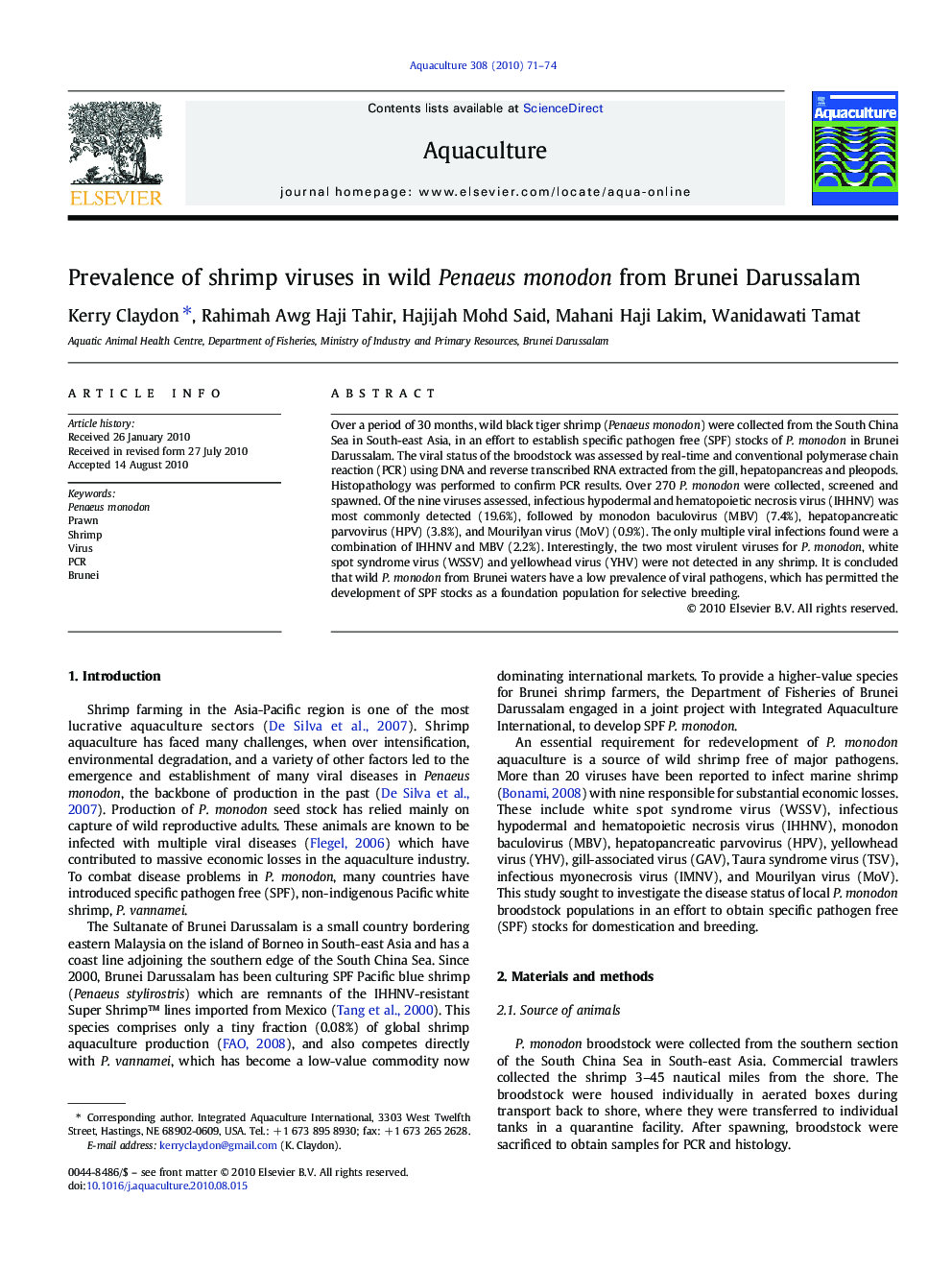| Article ID | Journal | Published Year | Pages | File Type |
|---|---|---|---|---|
| 2423342 | Aquaculture | 2010 | 4 Pages |
Over a period of 30 months, wild black tiger shrimp (Penaeus monodon) were collected from the South China Sea in South-east Asia, in an effort to establish specific pathogen free (SPF) stocks of P. monodon in Brunei Darussalam. The viral status of the broodstock was assessed by real-time and conventional polymerase chain reaction (PCR) using DNA and reverse transcribed RNA extracted from the gill, hepatopancreas and pleopods. Histopathology was performed to confirm PCR results. Over 270 P. monodon were collected, screened and spawned. Of the nine viruses assessed, infectious hypodermal and hematopoietic necrosis virus (IHHNV) was most commonly detected (19.6%), followed by monodon baculovirus (MBV) (7.4%), hepatopancreatic parvovirus (HPV) (3.8%), and Mourilyan virus (MoV) (0.9%). The only multiple viral infections found were a combination of IHHNV and MBV (2.2%). Interestingly, the two most virulent viruses for P. monodon, white spot syndrome virus (WSSV) and yellowhead virus (YHV) were not detected in any shrimp. It is concluded that wild P. monodon from Brunei waters have a low prevalence of viral pathogens, which has permitted the development of SPF stocks as a foundation population for selective breeding.
